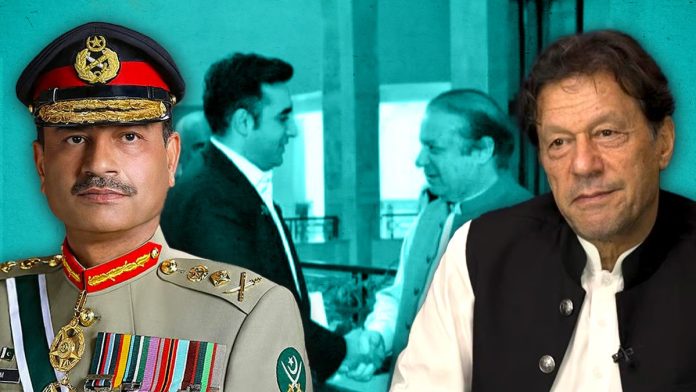Pakistan, a country that claims to be a democracy, has been under the shadow of the military since its birth in 1947. The military has directly or indirectly influenced every election that has taken place, using various methods to ensure that the civilian governments are always weak and dependent on the military’s interests.
The military controls the resources and budget of the country, allocating a disproportionate share to defence and its own economic ventures. The military’s budget and assets are not subject to any civilian oversight or accountability, and the civilian governments have little say in how they are spent or managed.
The military also manipulates the political parties and candidates, either by supporting or opposing them, depending on its preferences. The military uses its intelligence agencies, such as the Inter-Services Intelligence (ISI), to coerce, bribe, threaten, or blackmail politicians to change their loyalties or policies. The military also creates or backs proxy parties, such as the Pakistan Tehreek-e-Insaf (PTI) led by Imran Khan, to undermine or challenge the mainstream parties, such as the Pakistan Muslim League-Nawaz (PML-N) led by Nawaz Sharif, or the Pakistan Peoples Party (PPP) led by Bilawal Bhutto Zardari. The military also uses its influence to disqualify or arrest politicians on charges of corruption or treason, such as Nawaz Sharif in 2017 and Imran Khan in 2023.
The military also unleashes the terror groups and violence that it maintains links with, such as the Taliban, the Lashkar-e-Taiba, and the Jaish-e-Mohammed, and uses them as strategic assets against its rivals, such as India and Afghanistan. The military also allows these groups to operate freely within the country, and to target the politicians and parties that are seen as hostile or unfriendly to the military. The military also uses violence and intimidation to suppress the dissenting voices and movements, such as the Balochistan Liberation Army, the Pashtun Tahafuz Movement, and the Tehreek-e-Labbaik Pakistan. The military also deploys its personnel and paramilitary forces, such as the Rangers and the Frontier Corps, to monitor and control the polling stations and the vote counting process.
The military also exerts its pressure on the media and the judiciary, to shape the public opinion and the legal outcomes in its favor. The military censors, harasses, or attacks the journalists and media outlets that criticize or expose its role and activities. The military also influences the appointment and removal of the judges and the lawyers, and interferes in the judicial proceedings and verdicts, especially in cases involving the politicians and the parties that are opposed to the military. The military also uses its propaganda machinery, such as the Inter-Services Public Relations (ISPR), to spread its narrative and agenda through the social media and the online platforms.
These are some of the ways that the military ensures that the elections are never free or fair in Pakistan, and that the civilian governments are always subservient to the military. The military’s involvement in politics has undermined the democratic institutions and processes, and has created a culture of fear and distrust among the people. The military’s dominance has also hampered the economic and social development of the country, and has isolated it from the international community. The military’s interference in the elections has also increased the chances of instability and violence, and has jeopardized the peace and security of the region. The Pakistani people deserve a genuine and inclusive democracy, where they can freely and fairly choose their representatives and leaders, and where the military respects the constitution and the rule of law.


